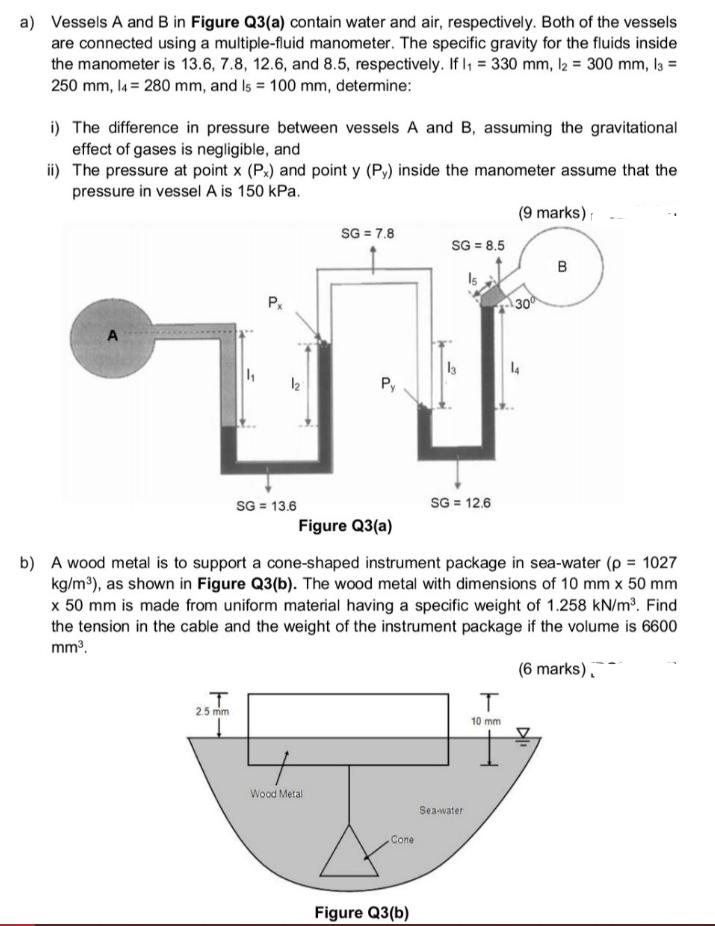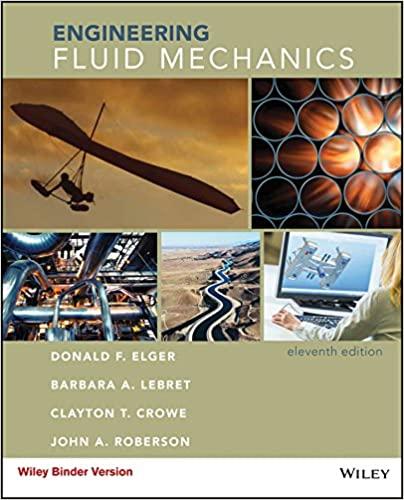Answered step by step
Verified Expert Solution
Question
1 Approved Answer
a) Vessels A and B in Figure Q3(a) contain water and air, respectively. Both of the vessels are connected using a multiple-fluid manometer. The

a) Vessels A and B in Figure Q3(a) contain water and air, respectively. Both of the vessels are connected using a multiple-fluid manometer. The specific gravity for the fluids inside the manometer is 13.6, 7.8, 12.6, and 8.5, respectively. If I = 330 mm, 12 = 300 mm, l3 = 250 mm, 14 280 mm, and Is = 100 mm, determine: i) The difference in pressure between vessels A and B, assuming the gravitational effect of gases is negligible, and ii) The pressure at point x (Px) and point y (Py) inside the manometer assume that the pressure in vessel A is 150 kPa. (9 marks) A Px T 2.5 mm 12 SG = 13.6 SG = 7.8 + Wood Metal Py Cone SG = 8.5 Figure Q3(b) 13 Figure Q3(a) b) A wood metal is to support a cone-shaped instrument package in sea-water (p = 1027 kg/m), as shown in Figure Q3(b). The wood metal with dimensions of 10 mm x 50 mm x 50 mm is made from uniform material having a specific weight of 1.258 kN/m. Find the tension in the cable and the weight of the instrument package if the volume is 6600 mm. (6 marks) SG = 12.6 Sea-water 300 T 10 mm 14
Step by Step Solution
There are 3 Steps involved in it
Step: 1
a i Determining the pressure difference between vessels A and B Given I1 330 mm I2 300 mm I3 250 mm ...
Get Instant Access to Expert-Tailored Solutions
See step-by-step solutions with expert insights and AI powered tools for academic success
Step: 2

Step: 3

Ace Your Homework with AI
Get the answers you need in no time with our AI-driven, step-by-step assistance
Get Started


